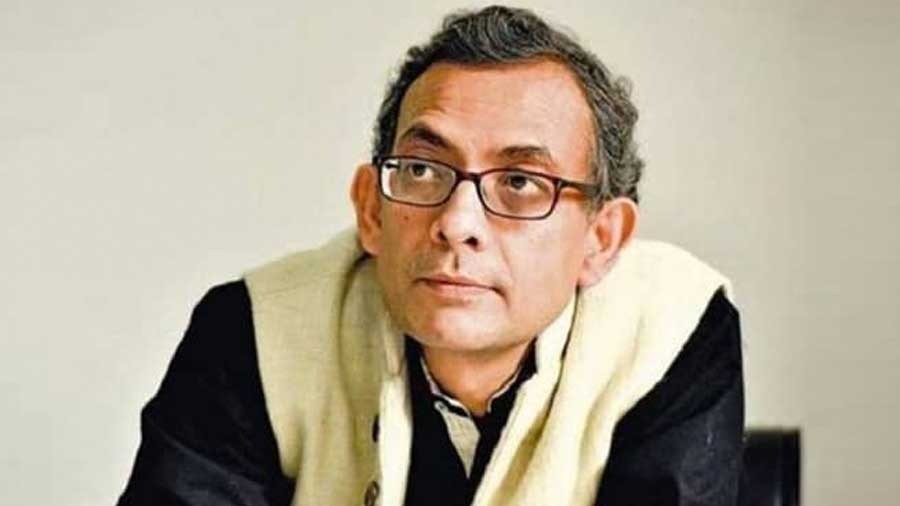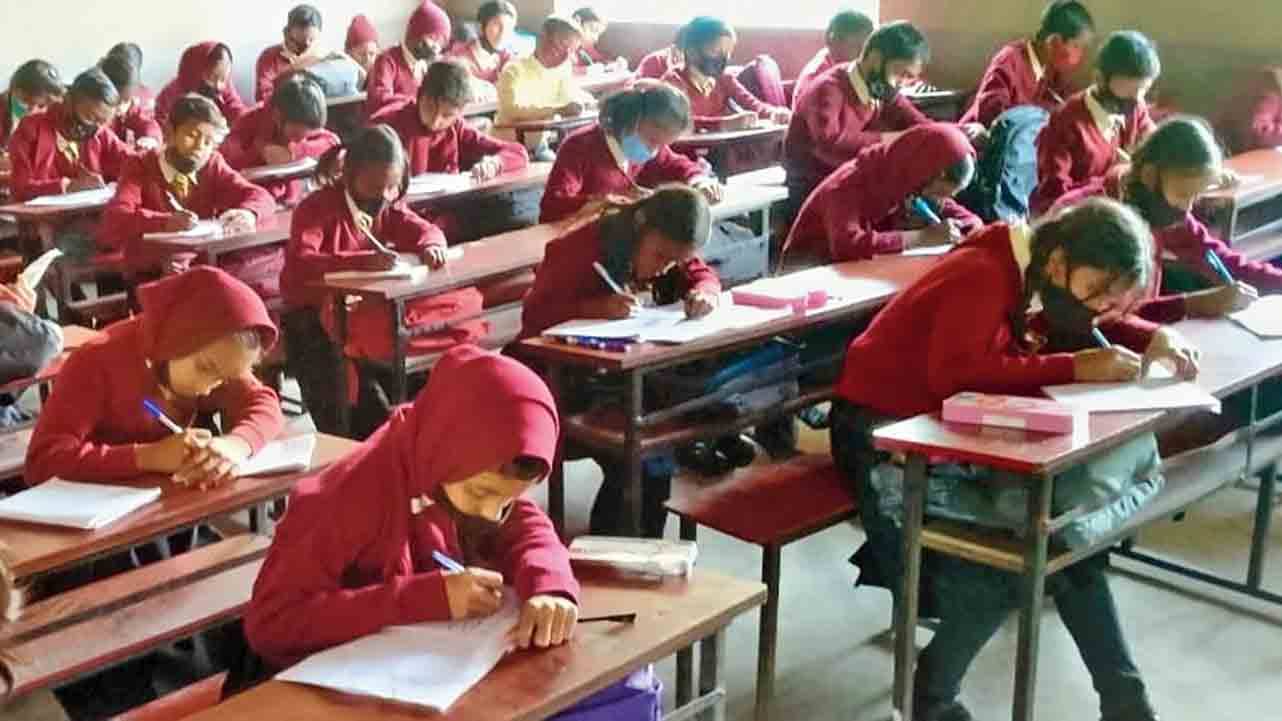The absence of in-person classes for almost two years has left many children lagging in terms of learning and teachers should begin from where the students are stuck instead of only focusing on the syllabus, economist Abhijit Vinayak Banerjee said on Wednesday.
The Nobel laureate was speaking at the release of the Annual Status of Education Report (ASER) 2021 for rural Bengal.
The report, based on a survey conducted among students of government schools, revealed a significant drop in children’s ability to read letters, paragraphs and do arithmetic compared with 2018.
According to the report, the percentage of children in standard I who could read letters has dropped to 66.3 per cent among those surveyed in 2021, compared with 73.2 per cent in 2018.
The percentage of children in standard II who could read at least words dropped from 66.2 per cent in 2018 to 53 per cent in 2021.
A drop was apparent in the children’s ability to do arithmetic as well.
“Now that schools are reopening, the focus should be on uplifting children who are lagging in terms of learning so that they are able to understand the lessons being imparted in the standard to which they have been promoted,” Banerjee said.
“Before teaching them the grade-level curriculum, the children must be taught from the level where they are actually standing.”
Banerjee elaborated that if a student in standard VII is found to have not learnt beyond standard V, he or she should be helped to bridge the gap before teaching him or her the syllabus of Class VII.
If this is not done, students will lose interest in attending school as they will not be able to understand what is being taught. “Why would they come to school?” he asked.
The Telegraph has reported several times the challenges many students faced in attending online classes and how learning was impacted.
The annual status report also showed that the percentage of children in standard I and standard II who could recognise at least single-digit numbers were 68.5 and 86.4 respectively in 2021.
In 2018, the corresponding figures were 77.8 and 92.6.
The percentage of children in standard III who could do subtraction dropped from 35.5 per cent in 2018 to 27.3 per cent in 2021.
Similarly, the percentage of children in standard V who could do division sums dropped from 29.2 in 2018 to 25.9 in 2021.
Banerjee said the global advisory board of the Bengal government, of which he is a member, has advised the state government to reopen schools as quickly as possible.
“The board has no doubt and has asked the government to open schools. In fact schools are opening up. This is a good time to reopen schools as classes can be held outdoors and there is less risk of the spread of Covid,” he said.
The Pratham Education Foundation and Liver Foundation, West Bengal, were partners in conducting the survey and bringing out the report.
Liver Foundation had been running open-air classes across districts since March 2020 for primary students who had lost their basic knowledge in literacy and numeracy because of long absence from schools.
Abhijit Chowdhury, secretary of Liver Foundation, said the objective behind the initiative — named Paralekha — was to ensure that the children were not detached from the process of learning.
The survey for ASER 2021 was conducted among 11,189 children in 10,141 households across 17 districts of Bengal. It was conducted among children in the 3-16 age group in December.
Rukmini Banerjee, CEO of Pratham Educational Foun-dation, said comparing data between two years was fine because ASER always maintained the same parameters while conducting the survey.
The report only showed the trends and did not give any cause behind the change in trends, she said.

